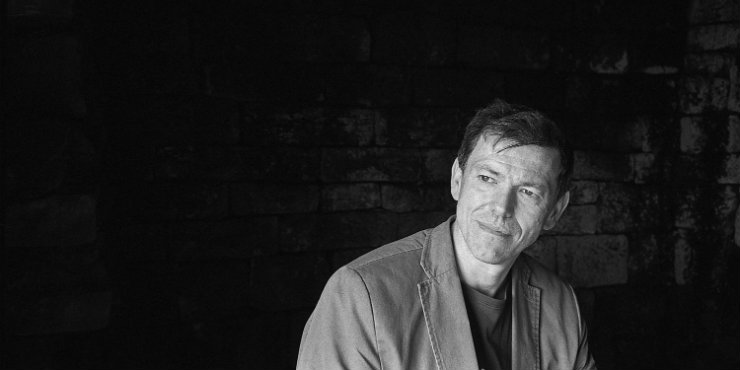
Hugh Montgomery is the director of the UCL Centre for Health and Performance and Professor of Intensive Care, a genetic research pioneer and a founding member of the UK Climate and Health Council. He has completed numerous physical endurance challenges, from running three 100k ultra marathons, to climbing Mount Everest, to jumping naked from a plane at 14,000 feet, to breaking the world record for underwater piano playing.
Hugh’s debut thriller, Control, came into being after he discussed his idea for the story with elite crime writer Lynda La Plante at a dinner party. She asked him to send her the first chapter by the following morning, and he couldn’t possibly say no!
1. Who were your literary influences as you were growing up?
My mother. She always read to us. There were bedtime stories, of course, but we’d also all choose books for holidays which she’d read to us in the car and so forth. I remember Richard Adams (Watership Down), Alan Garner (The Weirdstone of Brisingamen), C. S. Lewis (The Chronicles of Narnia).
In primary school, a fabulous teacher had us reading everything from Aleksandr Solzhenitsyn to Rupert Brooke. In secondary school, Mike Allen encouraged my efforts at creative writing.
Nowadays, I often read to understand how others write. I read Stephen King’s On Writing and am now working my way through some of his novels.
2. What was it like working with Lynda La Plante?
Humbling. Who deserves or gets the chance to be given advice from someone at the top of their field? She’s superb at story, of course. But she’s good at ‘small nudges’:
Less is more: not every detail has to be described in depth. The audience can fill in gaps.
Motivators. I showed her an early draft of Control, and she insisted that Trenchard had to have done something very bad indeed to deserve what he got. She was right.
3. Can you give Suffolk readers a flavour of what your debut thriller, Control, is about?
It’s partly a whodunit and partly a whydunit. The story is set in a hospital in the late 1980s, so I’m writing about the world I knew as a junior doctor.
Michael Trenchard is a superb surgeon, but his motivators are his reputation, and ability to control those around him. Indeed, the original title was just that – ‘Reputation and Control’. There is more than a touch of #MeToo in the way he uses his power to manipulate others, especially women. His interest in money over morals means that patients suffer, too, so there is a growing line of people with motivation to see him ‘get his just desserts’.
He’s found in his office one evening, clearly the victim of sexual misadventure. But is all as it seems? Kash, fresh out of medical school, suspects not… and sets out to discover the truth.
4. Do you have any other books in the pipeline?
Yes. But whether they get written will depend, to a degree, on the success of this one. I’ve had commercial success with children’s and crossover fiction, but this is my first venture into thrillers.
5. What is currently on your ‘to read’ pile?
I alternate a non-fiction book (specifically, relating to something I know nothing about) with fiction. Cabbage then cake, if you will.
For non-fiction, I’ve just finished Ronen Bergman’s Rise up and Kill First: the secret history of Israel’s Targeted Assassinations, and am really enjoying Tim Marshall’s Prisoners of Geography: ten maps that explain everything about the world just now. Next up is Risk Savvy: how to make good decisions, by Gerd Gigerenzer and Angry Write Pyjamas), by Robert Twigger.
In terms of fiction, I’m reading Stephen King’s The Outsider. I’m halfway through, and in the ‘not sure’ phase at the moment.
6. You must have achieved a lot of your life goals already. Is there anything else you still have on your list?
Far, far too much. I got my motorcycle licence last week and want to learn to ride it far better. I’m looking to get my mixed-gas commercial diving licence back if I can.
I want to play the guitar, change the way we think about end of life care, learn to write computer code, humanise healthcare, write a (very particular) film, freedive and breath-hold for 10 minutes, and hug my sons more. I want to climb again.
And I still have some big scientific questions to crack. I have an idea that might bridge Darwin and Lamark, and I’d like to do the experiment.
7. What was it like to do Desert Island Discs?
So very special. Kirsty is a genius. She made me think that I was having a quiet and confidential chat with a close friend/psychotherapist. I never find time to stop and reflect and had to for this.
It was a bit scary. But it also allowed me to revisit a stack of music, and to fall in love with some of it again.
8. What do you do when you are not writing novels/discovering new genes/playing underwater piano/climbing mountains, etc, and which of those was the most nerve wracking?
Climbing mountains has certainly scared me more than any other physical challenge. I’ve not actually been buried in an avalanche but have twice felt certain that I was about to be. And that is seriously unenjoyable.
But emotional challenges scare me far more. Perhaps I spend my life running away from them? I also fear and run from my own horrid and pervasive inadequacies, fear of which plagues me.
